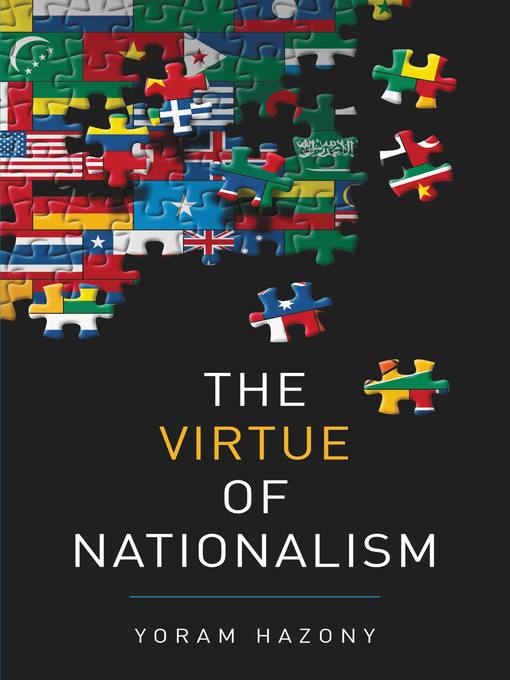
The Virtue of Nationalism
کتاب های مرتبط
- اطلاعات
- نقد و بررسی
- دیدگاه کاربران
نقد و بررسی

July 1, 2018
Israeli academic Hazony (The Philosophy of Hebrew Scripture, 2012, etc.), president of the Herzl Institute, offers a full-throated defense of nationalism as a guarantor of liberty.Describing himself as "a Jewish nationalist, a Zionist, all my life," the author argues that nationalism--the self-determination of nations, free to follow their own interests without interference--stands in sharp distinction to imperialism, which aims to unite humankind into a single polity. Today's "globalism," he claims, is only a variant on the imperialism of old, and the hated European Union might just as well be an extension of the old Holy Roman Empire. Hazony takes a Wilsonian view of the right of nations to exercise self-government, though the term "nation" becomes a slippery beast: Can it embrace outgroups without being imperial? Nationalism sometimes maps to bigotry and hatred. Here, the author's argument is somewhat disingenuous, in that the kind of nationalism people find objectionable these days is of the supremacist sort, insisting not on self-determination but on primacy. Even so, Hazony writes that "imperialist" theories such as Marxism and liberalism also have their detractors, so that hatred "may be endemic to political movements in general." The author believes that walling off the world into nations is for the good of all humankind, organizing us by "tribal language and culture" to keep us safe from alien ideas that may be spreading faster than they should, "giving time for what is misguided and destructive to be tried and found wanting"--liberalism, presumably, or maybe the kind of international organization represented by NATO, which makes the president of the United States the de facto head of Europe's armed forces, which "is to say that the president, in effect, plays the role of the emperor in today's Europe." Given the current president's imperial flourishes, of course, that may just be enough to get him to abandon his own nationalism.An interesting but not always convincing exercise in political theory.
COPYRIGHT(2018) Kirkus Reviews, ALL RIGHTS RESERVED.

August 13, 2018
Herzl Institute president Hazony (The Jewish State: The Struggle for Israel’s Soul) argues that nationalism, by which he means support of national sovereignty, is preferable to globalization, which he considers imperialist. Critics of recent populist movements consider nationalism to be rooted in racism and xenophobia, but Hazony defines it as opposition to supranational hegemony, a nation-level live-and-let-live policy. Whereas Nazi Germany is usually cited as the epitome of nationalism gone awry, Hazony argues that Hitler’s attempt to form a Third Reich over Europe was not dissimilar to the Catholic empires of the Middle Ages; in the author’s view, the founding of modern Israel in 1948 was a nationalistic response to the horrors of imperialism. The European Union and the United States are pursuing imperialist projects, he argues, and their focus on imposing one vision of the good at the expense of nations’ self-determination puts “the entire Protestant order in jeopardy.” His response to claims that nationalism leads to bigotry and hatred is to say that such behavior also exists among “anti-nationalists” and is more a feature of human nature than specific to nationalism. Though Hazony’s cynical views of Catholicism and the liberal world order, not to mention his waving away the behaviors and beliefs of self-identified nationalists, might strike some as controversial, this is on the whole a thought-provoking book.

























دیدگاه کاربران